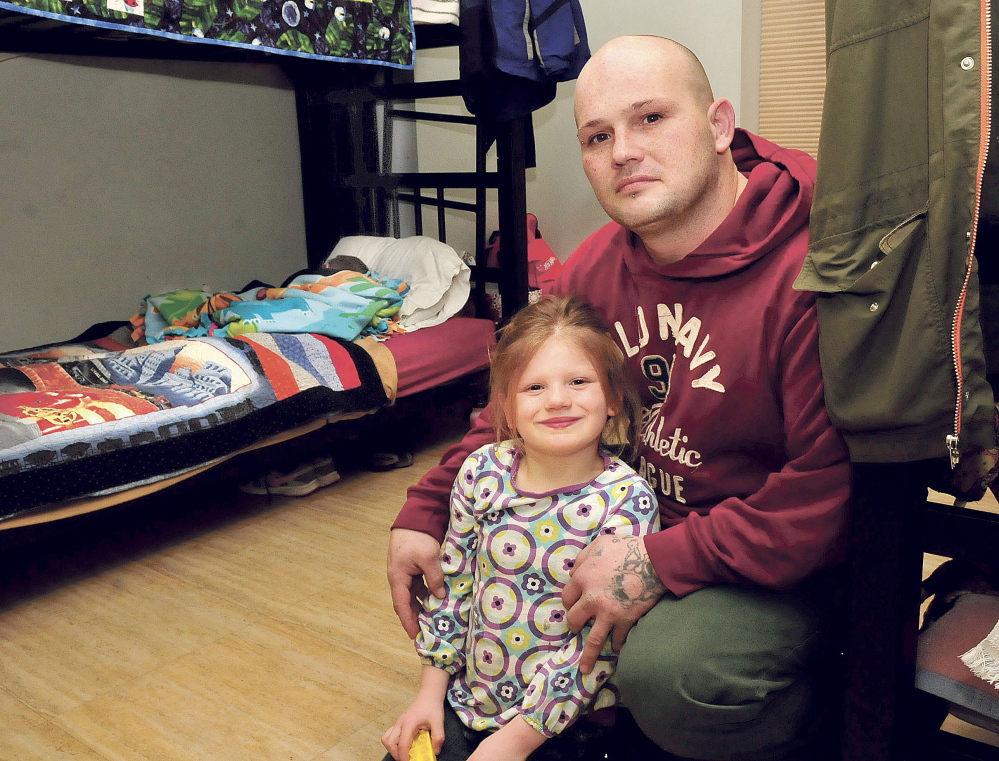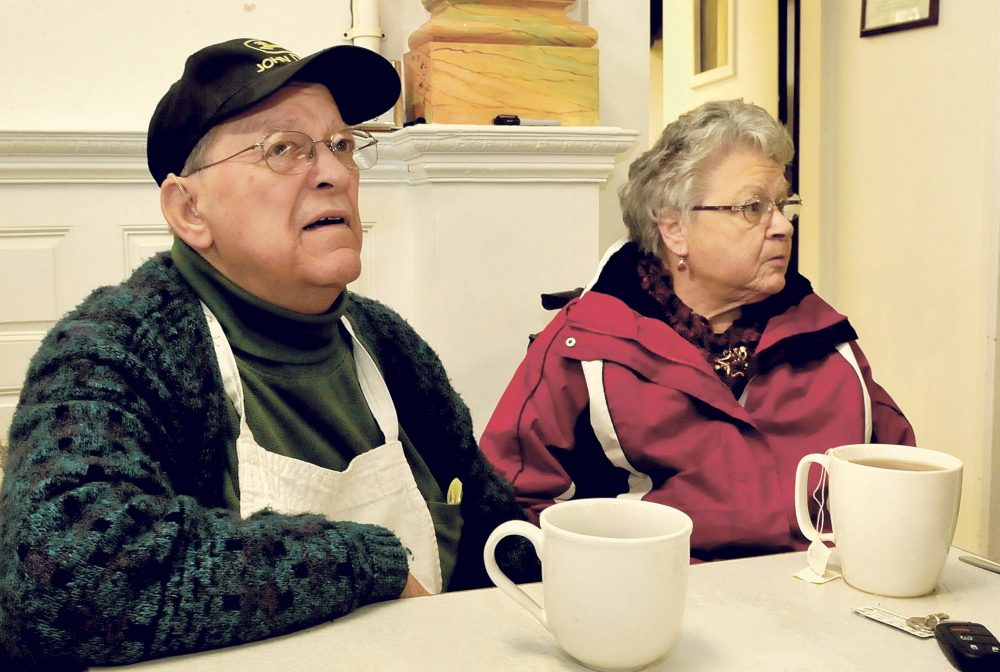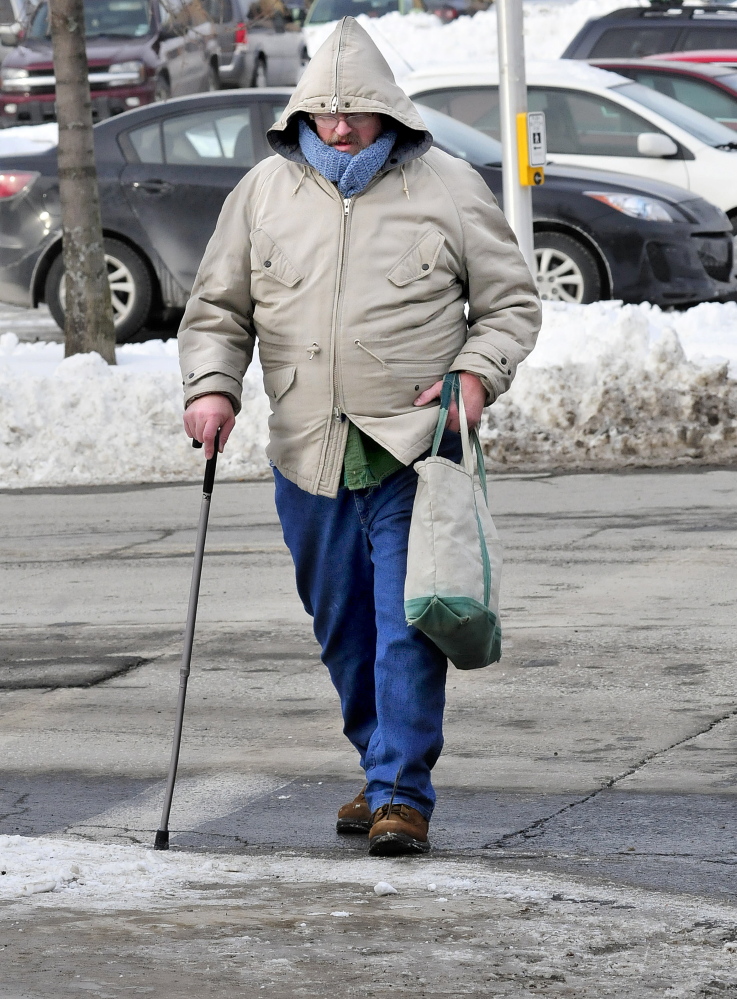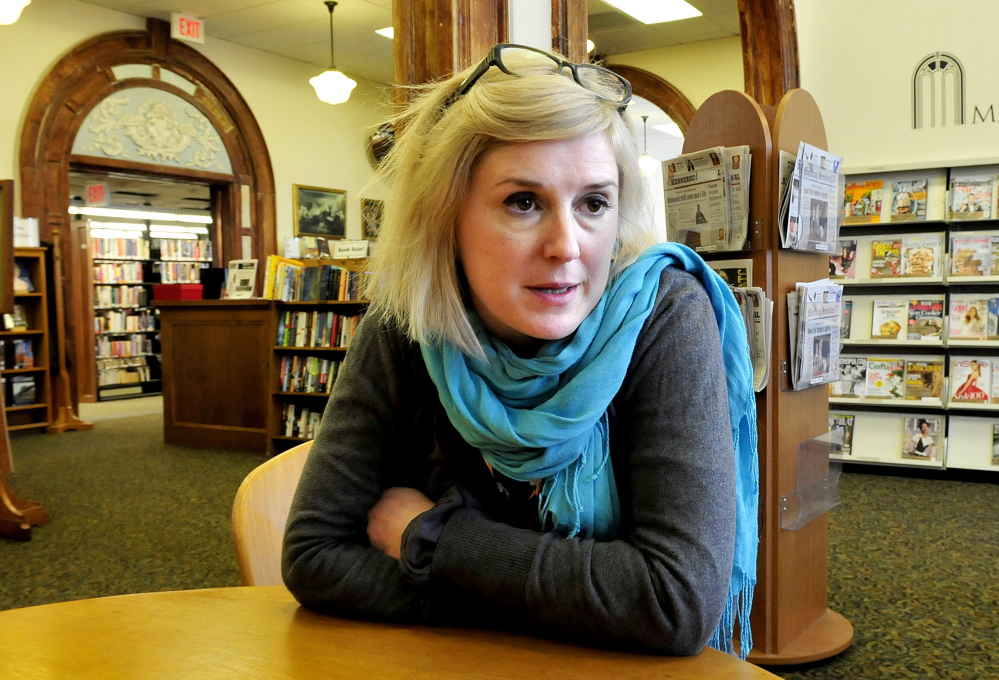WATERVILLE — Richard Walsh and his family never imagined they would be homeless, but as they learned, it can happen to anyone.
“I didn’t think it would happen to us, but it did,” said Walsh, 34. “It sure did — and it happened quick.”
Walsh was speaking Wednesday from the Mid-Maine Homeless Shelter where he and his wife, Heidi, 37, son, Aiden, 4, and daughters Breanna, 12, and Autumn, 6, have been staying for two months since his wife lost her job.
“We had no place to go,” Richard Walsh said. “We were bouncing around from couch to couch until we were called to come here.”
Shelter officials helped the family connect with services, and Heidi found a job in a call center. The Walshes expect to be renting a house in Fairfield in about two weeks, according to Richard Walsh. He says the shelter provided a critical resource for his family during this frigid winter.
“I’m glad they have it because I don’t know where we’d be right now,” he said. “We probably would be out in my van. I just know this place has helped us tremendously.”
Subzero temperatures are driving people indoors — and posing a particularly tenuous situation for people who are homeless or at risk of being homeless.
The shelter’s executive director, Betty Palmer, said all 48 beds were full Wednesday with people sleeping on mats on the floor. Twenty-six children were living there Wednesday. Open 24 hours a day, seven days a week, the shelter does not have the money to staff the facility all the time, so volunteers are essential and more are needed to do all sorts of things — cook, play with children and spend time with adults, Palmer said.
Jim Hitchcock, 44, has been at the shelter for almost two weeks. He said he and his wife separated, and he could not continue maintaining the mobile home they lived in.
“I had to pay heat, electricity and rent and couldn’t do it on my disability,” he said. “I got behind three months in rent. I was staying in my car.”
Hitchcock, a U.S. Navy veteran, has health issues including heart trouble and rheumatoid arthritis, as well as post traumatic stress disorder, which made it very hard for him to live in his car in the cold, he said.
Meanwhile, emergency workers report an increase in the number of people seeking shelter and warmth, especially in the evening and overnight hours, as temperatures dip into the single digits and beyond.
Waterville police helped one such man over the weekend.
“This person had been turned away from a number of shelters because they were full or because in the past he was disruptive and not following the rules,” Deputy police Chief Charles Rumsey said. “We ended up making emergency arrangements for him to stay at a local motel, and I think early this week he got access to money and is renting a room in a local motel.”
Wednesday and Thursday were predicted to be very cold, and with the wind chill factor, temperatures were expected to approach 30 below zero Wednesday night, according to Chris Legro, a meteorologist with the National Weather Service in Gray.
Legro said Wednesday morning that the temperature in Waterville was about 10 degrees, but was expected to rise to 15 or 16 and then dip to between 10 and 15 below zero overnight. Thursday was predicted to be in the single digits.
“There’s a chance of light snow Friday, but we’re not looking at any major snowstorms,” Legro said.
Linda Fossa, Waterville’s health and welfare director, said her office is seeing an increase in the number of people worried they will become homeless and those concerned about not having enough heat in their homes and apartments.
“We’ve noticed it with the phone calls and the foot traffic,” Fossa said Wednesday.
Those seeking assistance fill out applications to see if they are eligible to get help, she said.
“They might be able to get into shelters, they may have friends or family, they may be eligible for an apartment,” she said. “They could currently be with friends or family, and it’s not a long-term situation. With the price of oil and people on limited funds, we see people in apartments or homes where heat is not included, and sometimes it’s difficult to buy the oil they need. We’re using the general assistance rules and regulations to determine what the city can and can not do (to help).”
Fossa said various agencies and organizations collaborate to help connect at-risk people with services and resources.
“I like to think we all work together in unison to resolve any issues,” she said.
Meanwhile, people who are homeless, in transition or living in places that are not warm enough flock during the day to businesses and other places to get warm.
The Waterville Public Library is one such haven. Open seven days a week, the library is centrally located downtown, is easily accessible and with technology, public phone and restrooms, it is appealing to people who may be in transition, according to library Director Sarah Sugden.
“Overall usage is up, and there are no limits to how long people can stay here,” Sugden said Wednesday at the library. “It’s great to have this place available for people who need it. It’s been great for families, especially, because they can come in and do something in the warmth that is child-friendly and offers a variety of activities to do that are free. We don’t ask people to identify why they’re here, and we never would. We can assume that our visitors appreciate that our heat’s on. Everyone’s welcome and always will be.”
At the Sacred Heart Soup Kitchen on Pleasant Street, director Richard Willette Sr. said Wednesday that when it’s cold outside, more people tend to come in for lunch, which is served Monday through Friday.
He said between 108 and 125 people eat at the kitchen daily. He estimates that 80 percent really need the meal and the remainder may be lonely, want a meal and seek companionship.
Homeless people suffer a lot, he said.
“When it gets extremely cold, they’re going to stay in the water heater box to stay warm. They go and they get a box and cut the end of it off and sleep in it. And they come in here to warm up. I would say probably 35 percent doesn’t know where their home is. They actually have no home. The other people, they have a rent and it’s subsidized by the government.”
Willette, 81, who has directed the soup kitchen 35 years, said many of his patrons walk around parking lots and The Concourse downtown after lunch.
“It’s a long day for them,” he said. “Cold makes it worse.”
Amy Calder — 861-9247
Twitter: @AmyCalder17
Send questions/comments to the editors.







Success. Please wait for the page to reload. If the page does not reload within 5 seconds, please refresh the page.
Enter your email and password to access comments.
Hi, to comment on stories you must . This profile is in addition to your subscription and website login.
Already have a commenting profile? .
Invalid username/password.
Please check your email to confirm and complete your registration.
Only subscribers are eligible to post comments. Please subscribe or login first for digital access. Here’s why.
Use the form below to reset your password. When you've submitted your account email, we will send an email with a reset code.